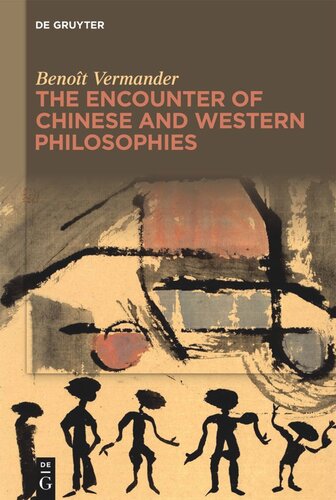

Most ebook files are in PDF format, so you can easily read them using various software such as Foxit Reader or directly on the Google Chrome browser.
Some ebook files are released by publishers in other formats such as .awz, .mobi, .epub, .fb2, etc. You may need to install specific software to read these formats on mobile/PC, such as Calibre.
Please read the tutorial at this link: https://ebookbell.com/faq
We offer FREE conversion to the popular formats you request; however, this may take some time. Therefore, right after payment, please email us, and we will try to provide the service as quickly as possible.
For some exceptional file formats or broken links (if any), please refrain from opening any disputes. Instead, email us first, and we will try to assist within a maximum of 6 hours.
EbookBell Team

4.1
60 reviewsThis book revisits the encounter between Chinese and Western philosophy while unfolding questions about the way "comparative philosophy" is conducted today.
In the vulgate of intellectual history, "Western thought" has constructed a substantialist view of reality that puts "relations" and "processes" into a subordinate position. The same view explains for the primacy given to the autonomy of individual beings. In contrast, according to the same vulgate, Chinese thought has been mainly stressing the fluidity of all phenomena and forms of life so as to best adapt to their overarching patterns.
I label such vision the Disneyland of comparative philosophy. It deciphers texts, partly in function of concepts that it extracts from them, partly according to notions that are superimposed over these texts.
The two first chapters are focused upon the Western version of the "Disneyland of comparative philosophy." The third chapter shifts to Chinese narratives about local, comparative and global philosophies. In contrast to these approaches, the fourth chapter offers a blueprint as to the way to engage different philosophical traditions into tasks they define and share together. A last chapter presents four cases of ongoing transcultural philosophical dialogues and the promises they bear.
Once it develops outside pre-formatted narratives, the web shaped by our philosophies and wisdoms suggests the outlines of a world that we could inhabit together.